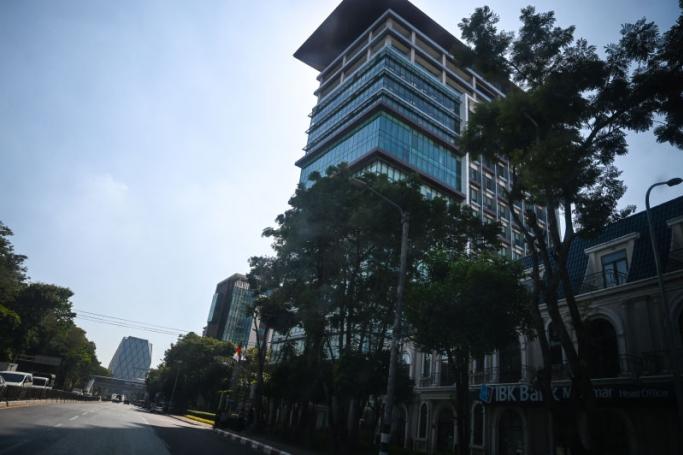Australian energy firm Woodside became on Friday the latest foreign company to leave Myanmar in the wake of a military coup last year.
Investors flocked to the country after the military relaxed its iron grip in 2011, paving the way for democratic reforms and economic liberalisation in the country of more than 50 million people.
But human rights groups have pressed foreign companies to rethink their activities in Myanmar following the February 2021 coup and a subsequent crackdown which, according to local monitoring groups, has left more than 1,500 people dead.
The US government this week warned companies worldwide that doing business with Yangon ran "the risk of engaging in conduct that may expose them to significant reputational, financial, and legal risks."
Investors and traders were warned specifically to avoid state-owned enterprises, the gems and precious metals sector, real estate and construction projects, and the arms business.
Here is a look at what foreign companies have done since the coup:
- Pulling up sticks -
Woodside's announcement came less than a week after French oil major TotalEnergies and US counterpart Chevron said they would pull out of the Yadana gas field in the Andaman Sea.
Like TotalEnergies, the Perth-based petroleum giant cited "the deteriorating human rights situation" as part of the reason for the move, which will cost the company at least US$200 million.
Woodside operates multiple exploration and drilling sites in Myanmar.
The junta earns $1 billion per year in revenue from natural gas projects through fees, taxes, royalties and proceedings from exports, according to Human Rights Watch.
Last year, Norway's Telenor announced it would sell off its Myanmar subsidiary, which is one of the nation's largest mobile phone networks, although the deal has yet to be finalised.
This month, it sold its stake in a Burmese digital payments service.
British American Tobacco, which employed more than 100,000 people in Myanmar before the coup, pulled up sticks in October.
French renewable energy firm Voltalia has also left.
- Suspending operations –
Japanese carmaker Toyota, which was due to launch manufacturing at a Myanmar factory last year, put the project on hold.
Myanmar factories became suppliers of many popular clothing brands over the past decade, but groups such as Italy's Benetton stopped placing new orders after the coup.
French energy giant EDF has suspended its involvement in a $1.5-billion project to build a hydroelectric dam, Shweli-3, alongside consortium partners Marubeni of Japan and Ayeyar Hinthar of Myanmar.
- Staying or stuck –
Shortly after the military takeover, Japan's Suzuki suspended production at its two Myanmar factories but then quickly reopened the facilities, which assemble vehicles for the local market.
French hotel group Accor, which has nine hotels in Myanmar, said on Friday that it had "made the choice to stay in the country for now and maintain support for its 1,000 employees on site and for the communities near the group's hotels."
Accor "came to Myanmar with the hope of bringing positive change for the population. It is in that spirit that we are maintaining our presence," the group said.
"Tourism is vital for Myanmar and remains one of the last links that connects the Burmese people to the world."
Japanese brewer Kirin has been trying for months to end its business ties with the Myanmar military, with which it operates two breweries.
After talks hit a wall, it launched arbitration proceedings in Singapore in December.
Denmark's Carlsberg, which employs around 450 people in the country, has said it has reduced output as consumption has declined, but has not announced any plans to leave.
AFP












